- BlackVoter.Org
- Posts
- BLACKVOTER.ORG #100
BLACKVOTER.ORG #100
Empowering Awareness: Stay Grounded With Blackvoter.org Newsletter!Empowering voices, driving change. 🗳️ Advocate for justice, equity, and representation at BlackVoter.org. Join us as we harness the power of the ballot to shape a future that reflects our values and aspirations. #BlackVoter #EmpowerChange Publish Time
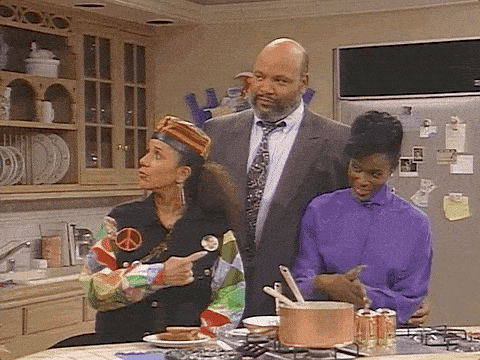

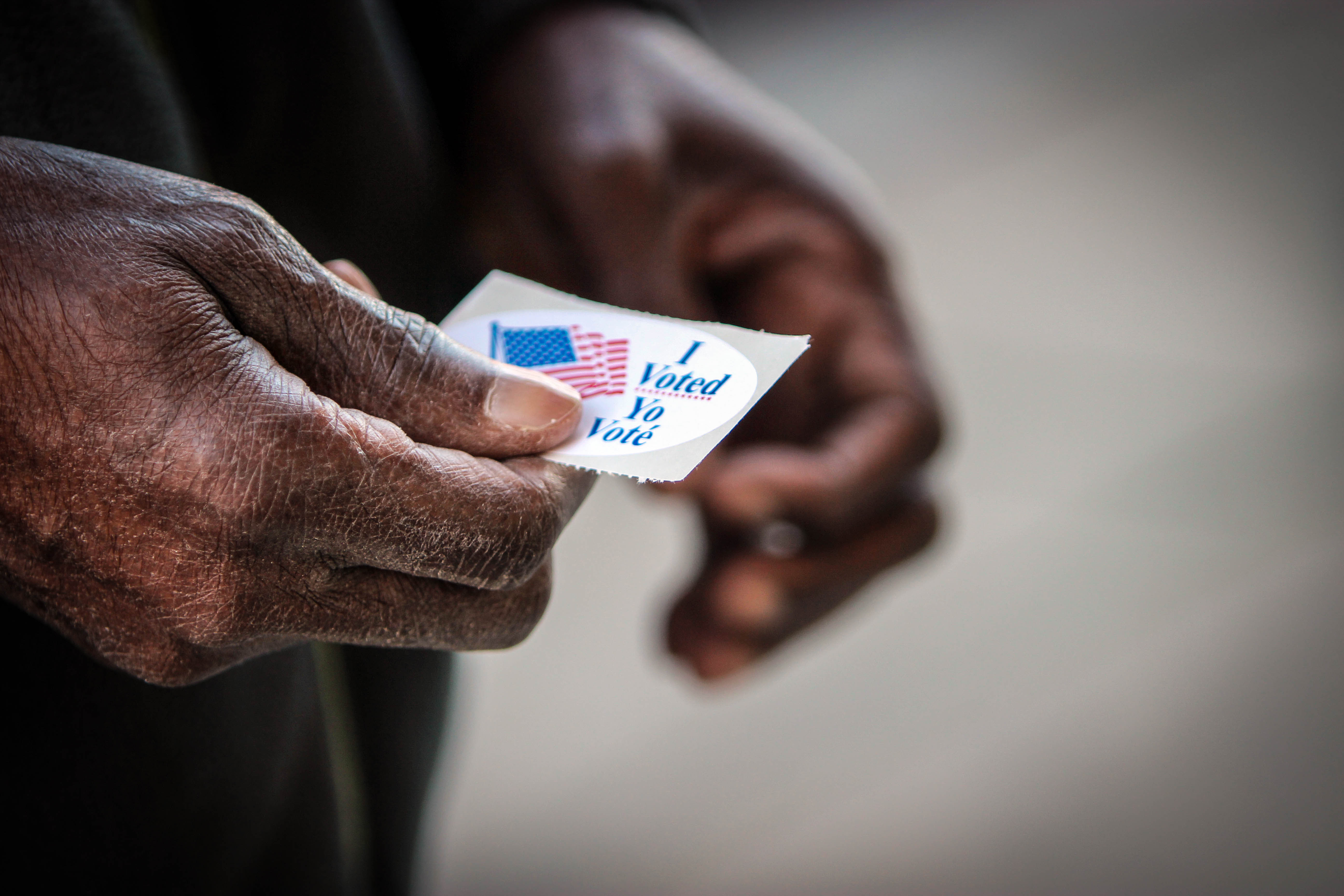
The webpage discusses the complexity of race and politics in the 2024 elections, specifically focusing on the role of black voters. Black voters have been identified as a pivotal Democratic voting bloc, with over 85% voting for Democratic candidates in recent elections.
However, black voters are not a monolithic group and hold a range of ideologies, including conservative, moderate, liberal, and progressive. Approximately 10% of black voters consistently vote for Republican candidates.
This raises questions about the waning enthusiasm for Democrats in the black community and the underlying factors causing this shift in partisan support.
The webpage also explores what the two parties are doing to address issues of concern to black voters.
The Race, Prosperity, and Inclusion Initiative at Brookings hosted a webinar to discuss these issues, featuring speakers such as Ashley C.J.
Daniels, Marcus Board Jr., Rashawn Ray, Matthew Brown, and moderated by Keesha Middlemass.
The discussion aims to shed light on the diversity of the black policy agenda and the reality of being a black voter in 2024.

Lara Trump, the co-chair of the Republican National Committee, made a personal and powerful statement at the Republican National Convention by wearing a black outfit. While many other speakers at the convention wore red in honor of the Republican Party, Lara Trump chose to wear black.
The color black is often associated with mourning and seriousness, and it set a tone that was in line with the current political climate. Lara Trump said she wore black as a reminder of the potential loss that could have occurred with the recent assassination attempt on Donald J.
Trump. The choice of black was unexpected and different from Lara Trump's previous fashion choices at the convention, showing that she was making a deliberate statement about the gravity of the situation.

Republicans are emphasizing the diversity within their party during the 2024 RNC in Milwaukee. The Black vote is often seen as leaning Democratic, but GOP leaders are working to change that perception.
Chicago Pastor Corey Brooks, who previously supported Republican Gov. Bruce Rauner, will be the final speaker at the convention.
He acknowledges that in the past, the Republican Party may not have been seen as welcoming or inviting to minority communities, but he believes that it's a new day for the party. The theme of Tuesday's events was immigration, and Brooks believes that his Chicago parishioners care about that issue as well as inflation, both of which he believes the GOP's message resonates with.
Mayor Richard Irvin from Aurora, who founded the Black Republican Mayor's Association, also attended the event and expressed his belief that the Democratic Party has not kept its promises to the Black community. South Carolina U.
S. Senator Tim Scott also spoke at the convention and emphasized that African American conservatives are not alone and that there are many who believe in their values.
Overall, the Republicans are striving to showcase their commitment to diversity and inclusion at the convention.

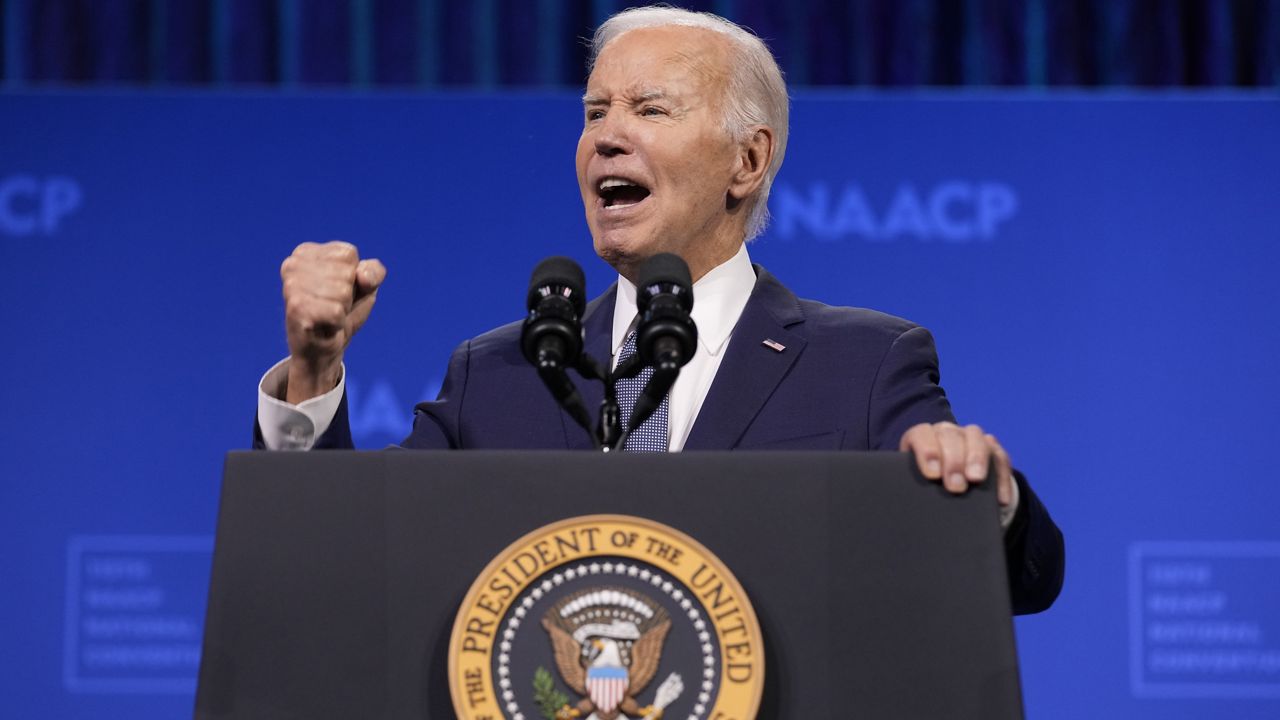
In a passionate speech at the NAACP National Convention in Nevada, President Joe Biden appealed to Black voters and criticized his Republican opponent's stance on supporting Black communities. Biden specifically called out former President Donald Trump's use of the term "Black jobs" during a debate and rally, saying it speaks volumes about his character.
He highlighted his own record, including his service as vice president to Barack Obama, investments in historically Black colleges and universities (HBCUs), and lowering the unemployment rate among Black Americans. Biden also laid out his goals for supporting Black communities in his potential second term, such as passing the John Lewis Voting Rights Act and raising the federal minimum wage.
The president's visit to Nevada is part of an effort to counter the Republican National Convention taking place this week.

In this engaging opinion piece, the authors argue that the United States cannot afford another four years under the leadership of Donald Trump. They discuss the consequences of the 2020 election and the impact of a conservative administration on various issues, including the judiciary, racial diversity, entrepreneurship, and social justice.
The authors highlight the appointment of conservative Supreme Court Justices and federal judges, who have the power to shape public policy and potentially undermine racial equity. They also examine Trump's support of white supremacists and far-right organizations, as well as the proposed policies outlined in the Heritage Foundation's Project 2025, which they argue would negatively impact communities like Detroit.
The authors call for collective action and truth-telling in order to protect themselves and their community from the detrimental effects of Trump's presidency.

"Woke" is a term that originated in African-American Vernacular English (AAVE) and has evolved to encompass a broader understanding of social inequalities such as racial injustice and sexism. It has been associated with the American Left and ideas of identity politics and social justice.
The term gained popularity in the 2010s, especially after being used by Black Lives Matter activists to raise awareness about police shootings of African Americans. However, as the term spread, it was also used by white people, which led to accusations of cultural appropriation.
In recent years, "woke" has become a pejorative used by the political right to criticize progressive movements. It has been associated with ideas like cancel culture and has been used to mock what some see as excessive political correctness.
The term has also been co-opted by businesses for marketing purposes, leading to accusations of "woke-washing" and insincere activism. Overall, "woke" has become a controversial and polarizing term in today's society.


This article discusses the history of voter suppression in the United States and its ongoing impact on marginalized communities. It highlights the efforts of civil rights leader John Lewis and his advocacy for the John Lewis Voting Rights Advancement Act, which aims to combat discriminatory voting practices.
The article explains that voter suppression has persisted for decades, evolving through tactics such as voter ID laws and gerrymandering that disproportionately affect vulnerable groups. The piece also provides a historical timeline of voter suppression, from the violent efforts to suppress Black voters during the Reconstruction Era to the battles fought by suffrage and Civil Rights Movement activists.
It emphasizes that although progress has been made, challenges remain in ensuring fair and inclusive voting rights for all Americans. Recognizing the historical impact of voter suppression is crucial in understanding current debates about voting rights and working towards a more democratic society.

In the wake of the recent shooting incident involving former president Donald Trump, political observers are questioning what his election message will be moving forward. Trump has a history of using his words and images to promote himself and his agenda, and his ability to rally his base through rhetoric has been a defining characteristic of his presidency.
Some experts believe that Trump will attempt to call for unity in the short term, especially given the intense focus on political rhetoric and its potential to incite violence. However, they remain skeptical that Trump will truly change his tune, as his consistent message has always been one of projecting strength and belittling his opponents.
It is expected that Trump will continue to use divisive and fear-based messaging that targets certain groups of people, such as immigrants and racial minorities, to rally his base and maintain their loyalty. While this rhetoric may be effective politically, it also has the potential to incite further violence and unrest.
_PKG_Black_NY_Trump_Voters_130400583_5770)
Former President Donald Trump is actively seeking support from Black voters as he runs for the White House again. This comes as a surprise to many, as Black voters have traditionally been a key demographic for the Democratic Party.
However, a June Siena College poll found that 29% of Black voters in New York state support Trump. Some Black voters in New York City have explained their support for Trump, citing reasons such as his conservative values, his support for small business owners during the pandemic, and his stance on public safety.
They also believe that President Joe Biden, due to his age, should not serve another term in office. Trump's campaign has even launched "Black Americans for Trump" in an effort to broaden support among this group.
Overall, it seems that Trump is making strides in his efforts to appeal to Black voters, despite being a divisive figure in politics.

The 60th anniversary of Freedom Summer, a civil rights movement in 1964 that aimed to register Black residents in Mississippi to vote, is being commemorated with a host of events and voter registration drives across the US. During that summer, Black and white college students from the North worked together with local activists to set up Freedom Schools and register Black residents to vote, leading to the passage of major legislation, including the Voting Rights Act of 1965.
The effort was a critical turning point in the civil rights movement and its legacy continues to inspire activists today. In light of recent attempts to restrict voting rights, veterans of the civil rights movement are calling on people to remember the sacrifices made during that time and work to protect the gains accomplished.
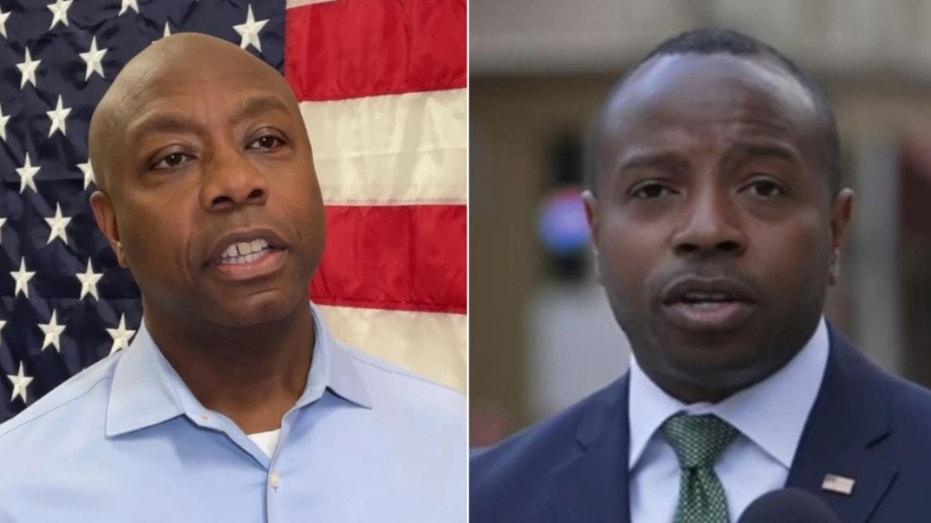
South Carolina GOP Senator Tim Scott responded to the comments made by Milwaukee's Democratic mayor regarding Trump's popularity among Black voters. The mayor had said, "I don't buy it" when asked about Trump's surge with Black voters.
Scott fired back, saying that on November 5th, the mayor will have to "buy it" because it will be a reality. He also noted that Trump has been successful in meeting the needs of African-American voters and that if Republicans can effectively market their message, they can expect a high turnout of African-American voters.
Scott acknowledged that it may be difficult to win over Black women voters, but believes that Black men are "gettable" if the message is sincere and passionate. Recent polling and data show that Biden has lost support among Black voters, with Trump narrowing the gap in popularity.
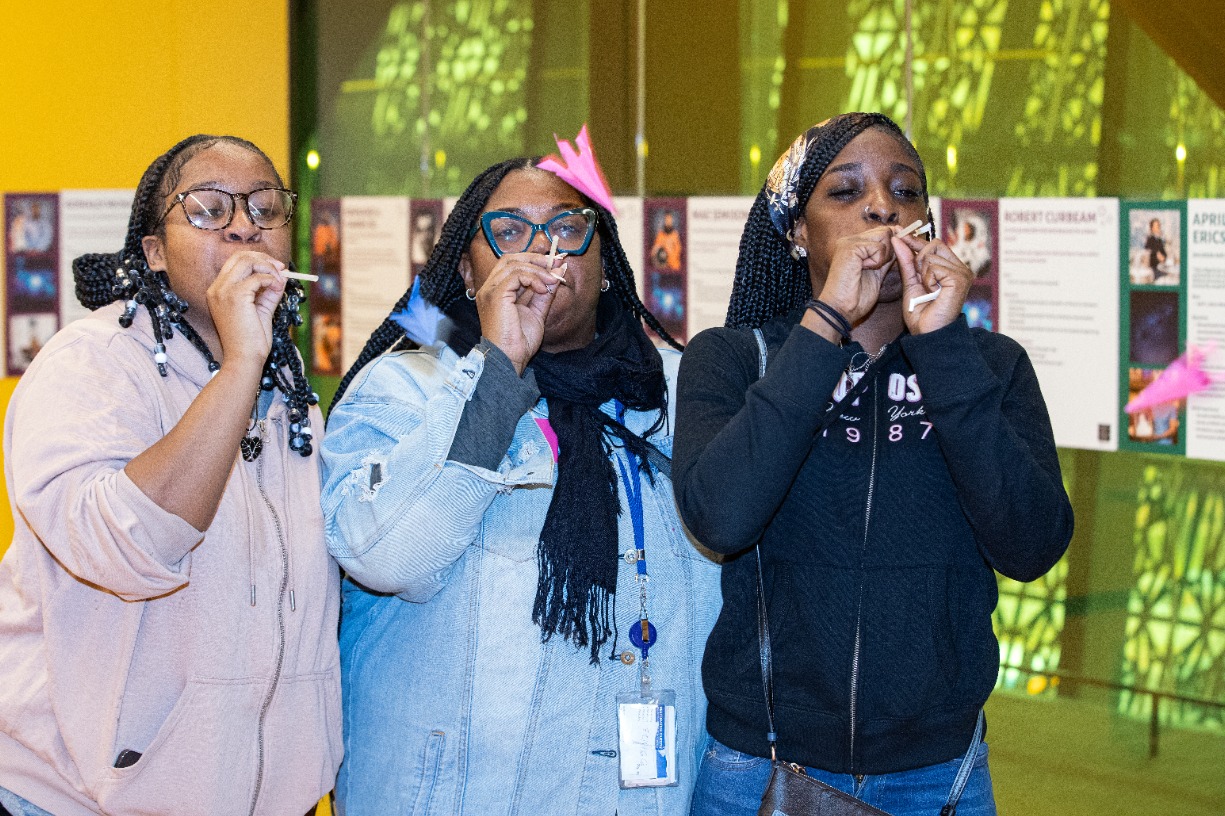
"Explore More! in STEM: To the Moon and Beyond!" is an upcoming classroom program at the National Museum of African American History and Culture aimed at kids aged 8 and above. This program seeks to explore STEM concepts in connection with African American history, culture, and the museum itself.
Specifically, participants will learn about the African Americans who have worked or are currently working at NASA, as well as the Artemis mission. By combining STEM learning with African American history, this program aims to inspire and educate young minds.
The event will take place on Wednesday, July 17, 2024, from 11:00am to 1:00pm. In addition to this event, the museum has other upcoming events, such as a tour on slavery and freedom.
To stay updated on all the latest events and news from the museum, visitors can share their email address for updates.
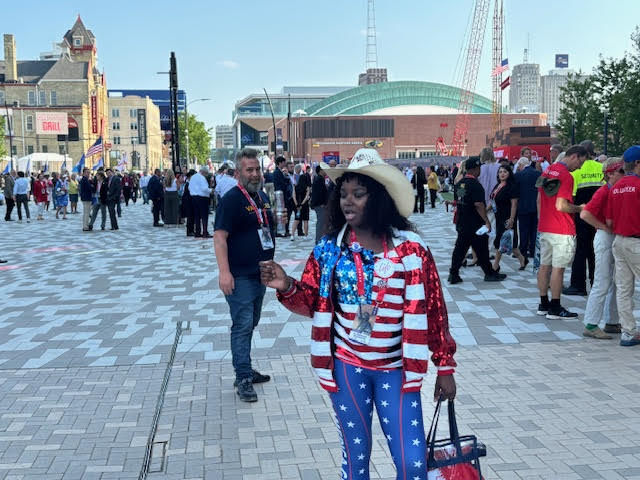
Black Americans who have felt let down by the Democratic Party for decades are now considering supporting former President Donald Trump. Patricia Easley, the founder of ChicagoRed, a movement of independent and conservative voters in Chicago, believes that the city has been plagued by a "mentality of liberal failure" and wants to change this narrative.
Easley, a Trump supporter, has garnered attention for her activism and criticism of Chicago Mayor Brandon Johnson. She argues that the Democratic Party has treated Black Americans as though they are in need of pity and charity, while perpetuating violence against them.
Easley's goal is to encourage black voters to break away from the Democratic Party and embrace conservative ideals. There is evidence of growing discontent among black voters, with a recent poll showing a decline in support for President Joe Biden.
In a move that is long overdue, a new historical marker has been unveiled in Crisfield, Maryland, honoring the Black women who played a pivotal role in leading a strike in the town during the 1950s. The marker, unveiled on Friday, pays tribute to the brave women who stood up against racial discrimination and fought for fair working conditions.
The marker is a reminder of the power and resilience of Black women in the face of adversity, highlighting their often overlooked contributions to the civil rights movement. These women stood tall, demanding respect and justice in an era when their voices were too often silenced.
The Crisfield strike was an important moment in history, showcasing the determination of not only the women involved but also the broader community. It was a catalyst for change, with the strike ultimately leading to improved wages and working conditions for African American workers.
This marker serves as a testament to the strength of unity and the importance of remembering and celebrating the unsung heroes of our past. It is a call to action for us to continue fighting for equality and justice in the present day, honoring the legacy of these remarkable Black women and ensuring that their stories are never forgotten.

